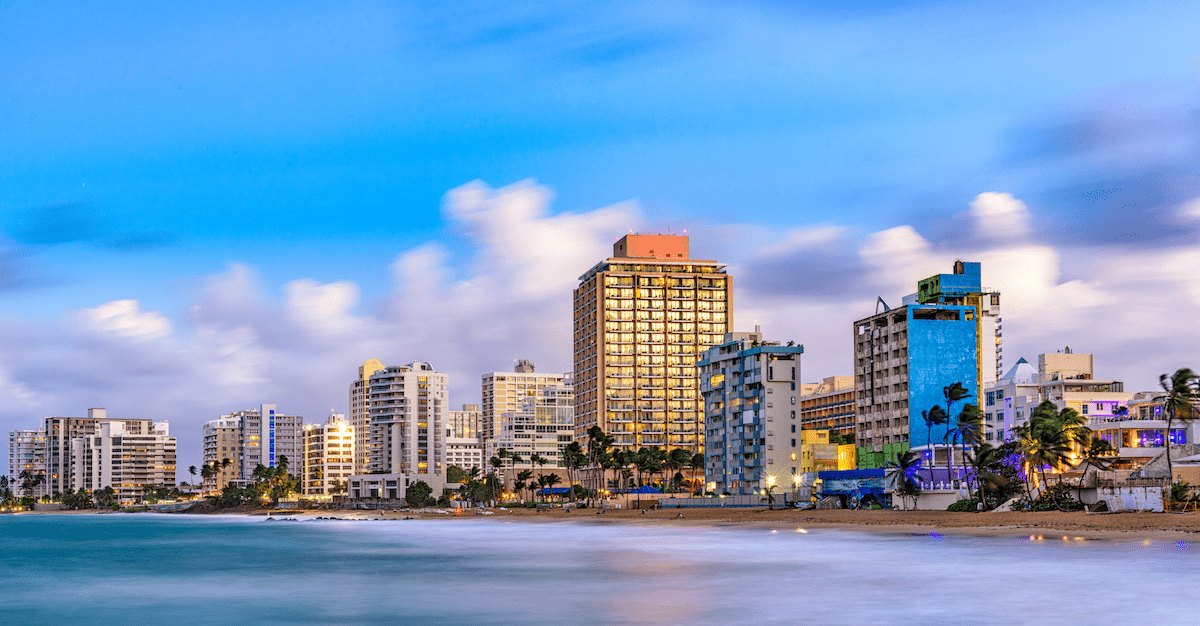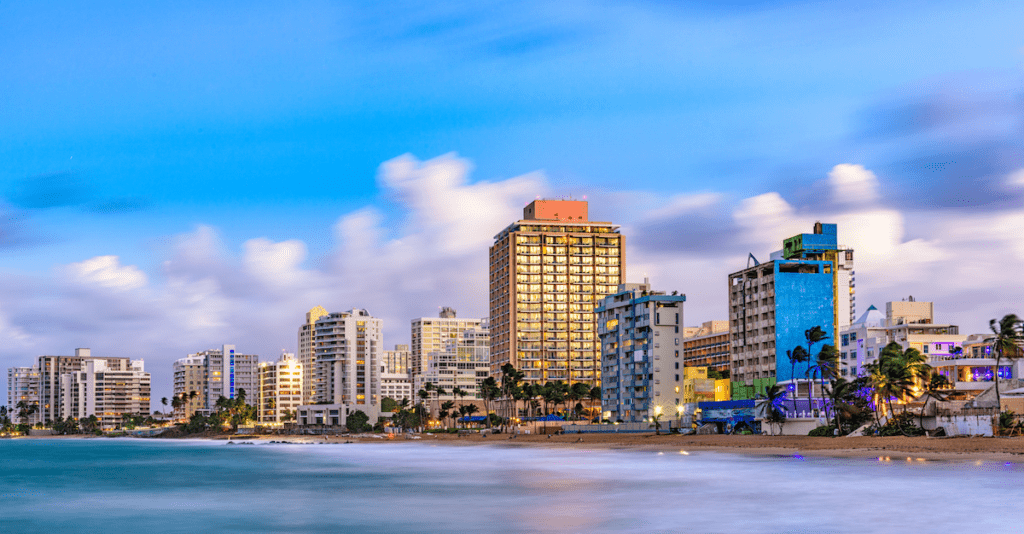Yesterday I had the pleasure of hosting one of our Total Access members, and his son, over to my house for lunch.
(We did this extremely radical thing where we happily shook hands, and then sat face to face to share a meal and a real, live conversation.)
He told me how he had spent the last few weeks here in Puerto Rico to decide if this was a place he could spend more time. And his answer was a resounding YES– in fact, he had already made an offer on a house.
My new amigo is a sharp entrepreneur, and he had conducted a thorough analysis of the costs and benefits.
And he realized that even a fraction of Puerto Rico’s tax benefits would pay for his new house… and its majestic ocean view.
I’ve written about Puerto Rico a lot– the benefits of living here are pretty remarkable… especially if you’re looking to legally reduce your tax bill.
Puerto Rico’s “Incentives Code” (which formerly was known separately as Act 20 and Act 22) provides legendary tax benefits that can dramatically reduce, or even eliminate, your tax bill.
Personally I derive most of my benefit from the corporate tax incentives; I set up a company here a couple of years ago that ‘exports services’ from Puerto Rico.
And that’s the basic idea; in order to qualify for the incentives, a company must provide services from Puerto Rico, but sell those services outside of Puerto Rico.
So you can be a physician located here on the island, but provide telemedicine services to patients in North America and Europe. Or a marketing agency that manages advertising campaigns from Puerto Rico, on behalf of clients worldwide.
The central idea is that you have to provide services from Puerto Rico, to clients outside of Puerto Rico.
‘Services’ can mean a LOT of things. And most entrepreneurs can usually find several aspects of their existing business that they can move to Puerto Rico.
For example, I have a colleague here who invests in US real estate; he buys apartments, typically holds them for a few years, and then sells them.
At face value this wouldn’t qualify. US-based rental income and real estate capital gains are taxable in the US.
But after receiving advice from his attorneys and accountants, he established a company here in Puerto Rico under the Incentives Code.
His Puerto Rican business provides (i.e. ‘exports’) certain services to his US-based real estate company… management services, accounting services, payroll services, tax prep services, etc.
And his US-based real estate company pays market-based fees to his Puerto Rican business in exchange for those services.
The fees are legitimate expenses, which reduces the taxable income of his US-based real estate business.
The fees then flow into his Puerto Rican business as income that qualifies for the tax incentives.
So even though he isn’t able to completely eliminate his US tax bill, he derives a lot of benefit.
The corporate rate under the Incentives Code is just 4%. It’s peanuts. On top of that, there is a tiny municipal tax between 0.2% and 0.5%.
Plus, because it’s a Puerto Rican company generating Puerto Rico-based income, there is typically no US federal tax.
And if you’re a bona fide resident of Puerto Rico, you pay zero tax on any dividends that you pay from the company to yourself.
So your company pays, say, 4.5% on its profits. And then you can put the rest of the money in your pocket, tax-free.
One requirement is that your company must have at least one employee. After all, someone has to be working to provide those exported services.
That employee can be you. But whoever it is needs to earn a salary, and pay local individual income tax on that salary.
The salary must be real. You can’t pay yourself a dollar. It should be a genuine salary that reflects market rates in Puerto Rico.
But remember that salaries in Puerto Rico are MUCH lower than they are in the US mainland, so this typically isn’t a major issue.
[As an example, you’d pay around 11% on a $50,000 salary here, which is considered quite good.]
And that’s the meat of it.
Surprisingly, the application process is pretty straightforward. You actually draft a customized, individualized contract with the Puerto Rican government regarding your specific business.
And I found the agency in charge of negotiating these contracts (the Office of Industrial Tax Exemption) to be easy and amenable to proposed changes.
After a period of some months, the contract is approved and the government issues a formal decree that’s retroactive to the beginning of the year in which you first submitted your application.
So if you submit your application in December 2020, but your decree isn’t issued until June 2021, your tax incentive applies for the entire 2020 tax year.
(You’ll need to speak with your tax advisor to see if/how you can benefit from the first year’s retroactive tax benefit.)
This is NOT just for US citizens. Foreigners can also set up Act 20 companies and pay the ultra low 4% rate.
Personally I think this is a much better jurisdiction to structure an operating business than, say, Seychelles, BVI, or many other offshore hotspots, because Puerto Rico is not in the crosshairs of the OECD.
For US citizens, you can move here just as easily as you can move to Texas or Florida. This is not a foreign country. And it’s definitely worth checking out…
[One final point: back in March, the Governor of Puerto Rico established a temporary moratorium on foreclosures due to Covid. This moratorium will be lifted at the end of September, so there will likely be a ton of cheap properties flooding the market here. We’ll discuss this more soon.]
Click here if you’re like more information about how to get started in Puerto Rico.









